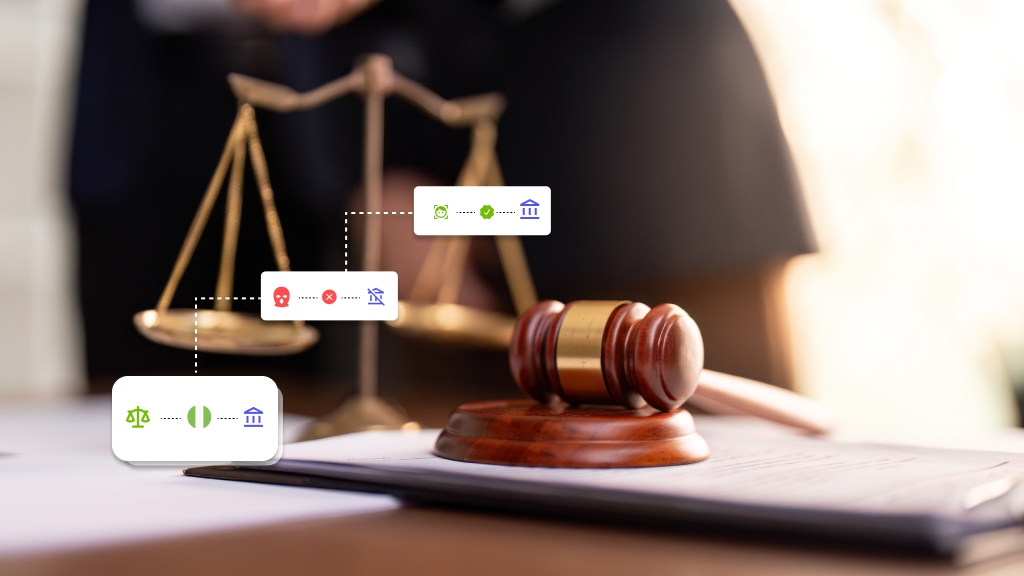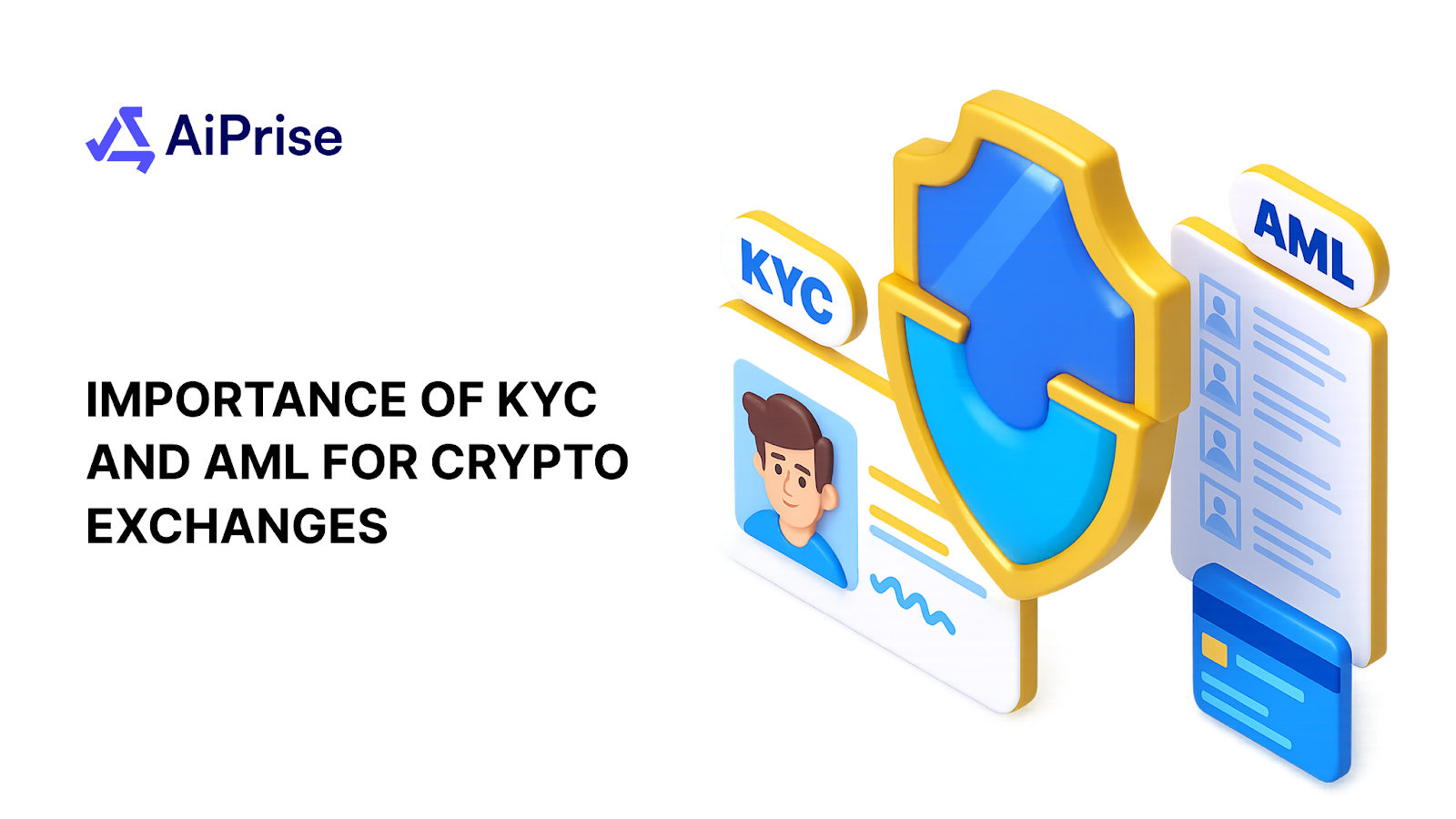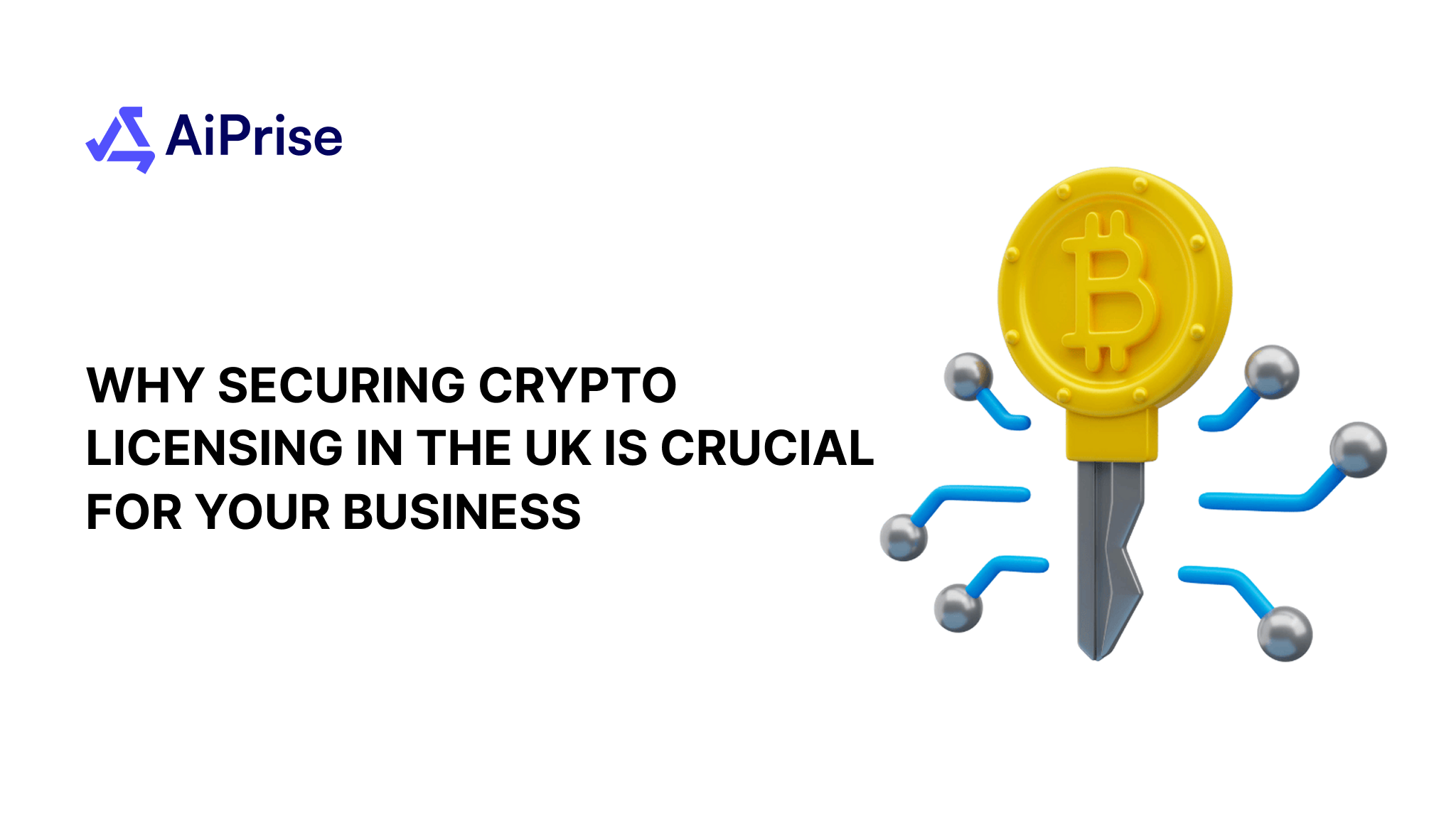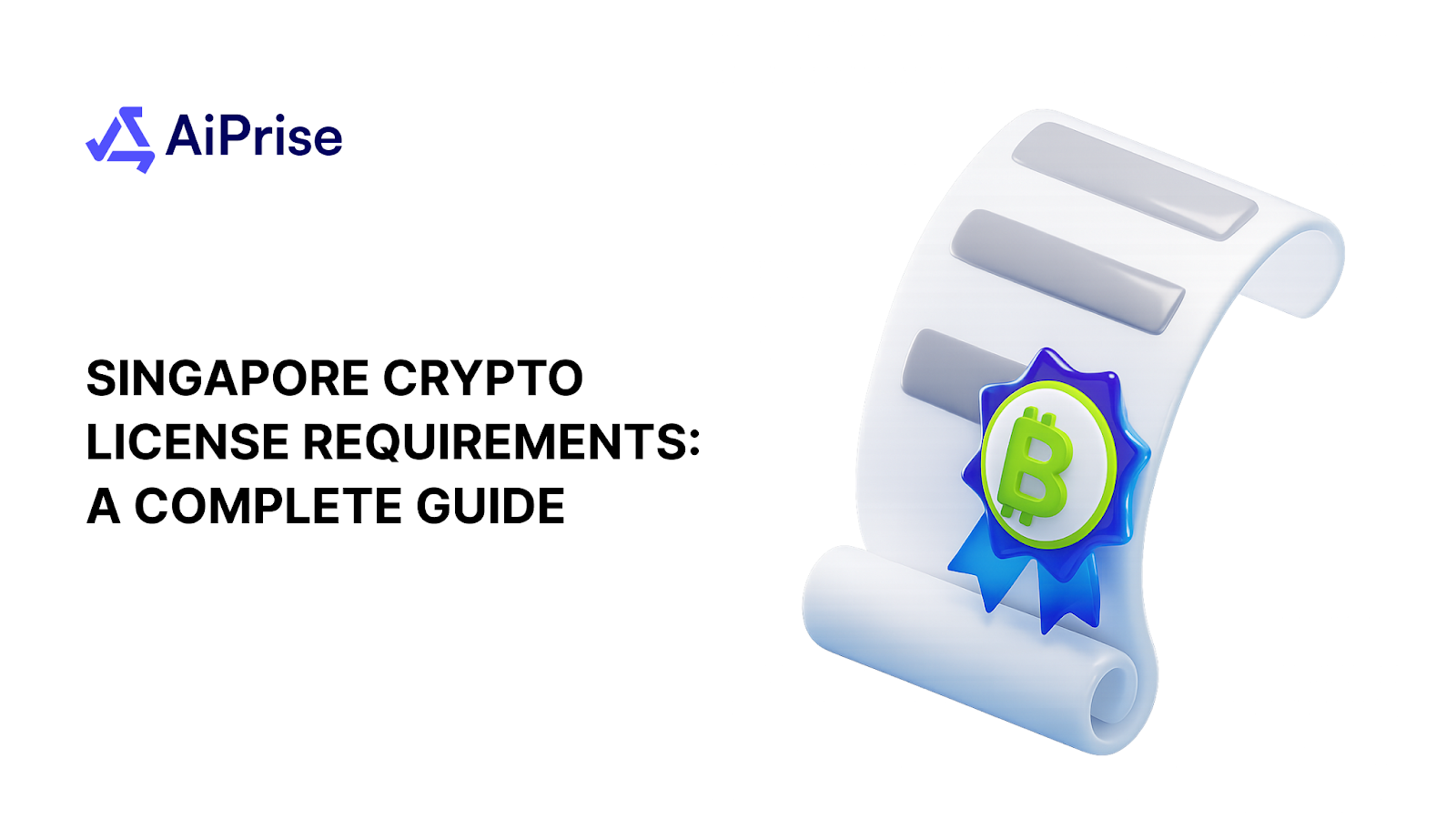AiPrise
8 min read
September 17, 2025
Understanding UK Crypto Regulations After MiCA

Key Takeaways










Staying compliant with crypto regulations can feel like a constant struggle. The rules change frequently, and it’s tough to keep up. Compliance costs for small to mid-sized crypto firms rose by 28% in 2025, now averaging $620,000 annually. For many businesses, this creates a heavy financial burden.
The UK Government’s statement in November 2024, declaring that "Cryptoassets are here to stay," highlights the growing permanence of crypto in finance. This brings with it new regulatory expectations that can add to the pressure your business faces.
In this blog, we’ll explore the key elements of UK crypto regulations, the role of MiCA, and how these changes impact your business. We’ll break down what you need to know to stay compliant and avoid costly penalties.
Key Takeaways:
- UK crypto regulations require businesses to register with the FCA for AML/CTF compliance.
- MiCA sets EU-wide standards, influencing the UK's regulatory approach post-Brexit.
- The UK's draft legislation introduces licensing, consumer protection, and market integrity rules.
- Key milestones include FCA Authorization by Q1 2026 and full compliance by late 2026.
- AiPrise offers compliance tools to help businesses meet regulatory standards and reduce costs.
Current State of UK Crypto Regulations
The UK has gradually built its regulatory framework for cryptocurrencies. Initially, the focus was on anti-money laundering (AML) and counter-terrorist financing (CTF) compliance. Since January 2020, crypto asset service providers (CASPs), including exchanges and custodians, have been required to register with the Financial Conduct Authority (FCA) for oversight related to anti-money laundering (AML) measures.
On 29 April 2025, the UK Government published draft legislation for cryptoassets—the Financial Services and Markets Act 2000 (Regulated Activities and Miscellaneous Provisions) (Cryptoassets) Order 2025. This legislation follows consultations in 2023 and a November 2024 speech by the Economic Secretary to the Treasury, Tulip Siddiq, who provided an update.
The draft legislation allows the FCA to continue its work on cryptoasset regulation, which includes several consultation papers. On 2 May 2025, the FCA released DP25/1, discussing cryptoasset activities. Then, on 28 May 2025, two additional papers were released: CP25/14 (stablecoin issuance and cryptoasset custody) and CP25/15 (prudential regime for cryptoasset firms).
Key elements of the upcoming UK crypto regulations include:
- Licensing Requirements: Firms must be authorised by the FCA to operate legally in the UK.
- Consumer Protection: Measures will ensure that crypto platforms disclose risks clearly and operate transparently.
- Market Integrity: The regulations will prevent market abuse and insider trading.
Understanding these evolving UK regulations sets the stage for MiCA's influence. Let’s now explore MiCA’s role and its impact on the UK’s crypto regulations.
Also Read: Navigating KYC and Compliance Risk in the Stablecoin Space
MiCA & Its Impact on UK Crypto Regulations
The Markets in Crypto-Assets Regulation (MiCA) became fully applicable on 30 December 2024. MiCA standardises crypto-asset rules across the EU, covering crypto-asset issuers, trading platforms, custodians, and stablecoins. It ensures transparency, safeguards consumers, and prevents market abuse in crypto activities.
MiCA covers aspects of the broader crypto ecosystem but does not set a formal roadmap for decentralised finance (DeFi). DeFi is flagged for future review, but MiCA mainly focuses on crypto-asset service providers (CASPs) and stablecoins.
MiCA’s Influence on UK Regulations
MiCA does not apply to the UK directly post-Brexit. However, it strongly influences the UK’s approach. The UK government is working on its crypto-asset regulatory framework, expected to launch in 2026. This regime will likely integrate crypto issuers, exchanges, dealers, agents, and stakers into the existing financial services regulations.
The UK’s approach will align with MiCA in areas such as stablecoin regulation and regulated activities like crypto exchanges and custody services. However, the UK may not immediately bring stablecoins into payment services regulation, as MiCA does.
MiCA heavily influences the UK’s crypto regulations in several areas:

- Licensing & Registration: UK crypto businesses will need FCA registration, similar to MiCA's licensing rules.
- Stablecoin Regulation: MiCA regulates stablecoins, and the UK will follow similar guidelines, with the Bank of England playing a key role in overseeing stablecoins.
- Consumer Protection: MiCA ensures clear disclosures regarding the risks associated with crypto-assets. The UK will adopt similar measures.
- Market Integrity: MiCA establishes rules to prevent market manipulation, which the UK will mirror to ensure fair market operations.
Although MiCA has a significant influence on UK regulations, there are notable differences between the two. The UK’s framework will be integrated into the Financial Services and Markets Act (FSMA), whereas MiCA is a standalone framework.
Let’s take a look at a few key differences between MiCA and the UK’s future regulations.

Also Read: The UK's Digital Identity Landscape
This means firms operating across both regions will need to comply with two distinct regulatory regimes: one in the EU and one in the UK. These differences affect business operations, especially regarding licensing and compliance.
Licensing and Compliance Standards
Under the upcoming UK crypto regulations, the FCA will oversee licensing and compliance for crypto asset service providers (CASPs). Businesses will need to meet specific standards to operate legally within the UK. The regulations will focus on governance, risk management, and consumer protection.
The goal is to integrate crypto service providers into the UK financial system while ensuring transparency and operational resilience.
Here’s an overview of the licensing and compliance standards businesses will need to meet to operate in the UK:

With these compliance requirements in mind, businesses must stay on top of the key milestones and deadlines for regulatory compliance.
Key Dates and Milestones for UK Crypto Regulations
The regulatory framework will unfold in stages, with several key dates along the way. As a business, you’ll need to stay on top of these milestones to ensure compliance. Here are the critical deadlines to keep in mind:
Here are the key dates for crypto businesses to keep in mind:

Also Read: Understanding Regulatory Compliance: Definition And Requirements
With these important dates in mind, it’s time to focus on how to prepare your business for the new regulatory requirements.
Preparing for the New UK Crypto Regulations

Preparing for the new UK regulations requires businesses to align their operations with the updated compliance standards. From licensing to consumer protection, firms need to assess their readiness and make adjustments accordingly. A proactive approach will help ensure that your business is fully prepared ahead of the 2026 deadline.
Key preparation steps include:
- Conduct a Compliance Audit: Review existing processes to identify gaps that must be addressed for compliance.
- Ensure FCA Authorization: Gather the required documentation for FCA authorization, including governance plans and financial resources.
- Enhance AML/CTF Procedures: Update transaction monitoring systems and ensure staff training on AML/CTF best practices.
- Revise Customer Communications: Provide clear disclosures regarding the risks associated with crypto-assets.
- Invest in Compliance Technology: Use compliance automation tools to simplify processes like KYC checks and customer onboarding.
As you prepare for the new regulations, using the right tools can make the process easier. Let’s now look at how AiPrise can assist businesses in managing these compliance processes effectively.
Also Read: What Is KYC In Crypto Security And Compliance, And Why Does It Matter?
AiPrise: A Solution for Crypto Compliance

AiPrise offers a comprehensive solution for businesses navigating the complexities of UK crypto regulations. With automated tools for KYC, KYB, AML, and fraud detection, AiPrise simplifies compliance tasks and reduces the risks associated with manual verification.
AiPrise provides key benefits, including:
- Comprehensive Compliance: From AML monitoring to KYC checks, AiPrise ensures compliance while simplifying the verification process.
- Fraud Detection: AiPrise’s Fraud & Risk Scoring system helps identify potential risks early, preventing fraud.
- Faster Onboarding: AiPrise helps businesses onboard customers 50% faster while ensuring full compliance with UK regulations.
- Cost Savings: By consolidating multiple vendors, AiPrise can help you save up to 30% on vendor-related costs.
With AiPrise, you can simplify your compliance processes while ensuring your business stays ahead of regulatory changes. Let us help you build a secure and efficient compliance framework for the future.
Conclusion
The UK’s crypto regulations are becoming more complex, and staying compliant is crucial for your business to succeed in the long term. As scrutiny on crypto activities increases, staying proactive is necessary to avoid penalties and ensure secure operations.
Staying on top of regulatory changes and taking the right actions will help safeguard your business and support the overall stability of the crypto industry. Preparing now will help you meet future regulatory requirements.
If you need help with compliance, AiPrise can assist. With tools for KYC, KYB, and AML, AiPrise simplifies your verification processes and reduces fraud risks. Book A Demo today to learn how AiPrise can support your business in staying compliant with UK crypto regulations and beyond.
FAQs
1. What Are the Main Requirements for UK Crypto Firms to Comply With the New Regulations?
UK crypto businesses will need to be authorised by the Financial Conduct Authority (FCA) and adhere to rules covering anti-money laundering (AML) and counter-terrorist financing (CTF). Firms must also demonstrate proper governance, consumer protection measures, and market integrity protocols.
2. How Does MiCA Affect UK Crypto Regulations?
While MiCA does not directly apply to the UK due to Brexit, it influences UK regulatory plans. The UK is expected to adopt similar rules, particularly regarding licensing, stablecoins, and consumer protection. The Bank of England will oversee stablecoins, and the UK will introduce its own crypto-asset regulatory framework by 2026.
3. What Is the Timeline for the UK's New Crypto Regulations?
The UK is set to open the FCA’s Authorization window for crypto businesses in Q1 2026. Stablecoin issuers must meet the new requirements by mid-2026, and the deadline for full compliance by all crypto service providers is expected to be in late 2026.
4. What Are the Key Differences Between MiCA and UK Crypto Rules?
MiCA applies to the EU and is a standalone regulation, whereas the UK's regulations will be part of the Financial Services and Markets Act (FSMA). While both focus on licensing, consumer protection, and market integrity, the UK’s approach will likely involve the Bank of England for stablecoin oversight, unlike MiCA’s direct control over e-money tokens.
5. How Can Crypto Businesses Prepare for the Upcoming Regulations in the UK?
Crypto firms should begin by conducting compliance audits, ensuring they can apply for FCA Authorization, and updating their AML/CTF procedures. They should also revise customer communication to reflect crypto-asset risks clearly and consider investing in technology to help with KYC, AML, and fraud detection processes.
You might want to read these...

AiPrise’s data coverage and AI agents were the deciding factors for us. They’ve made our onboarding 80% faster. It is also a very intuitive platform.





Speed Up Your Compliance by 10x
Automate your compliance processes with AiPrise and focus on growing your business.


































